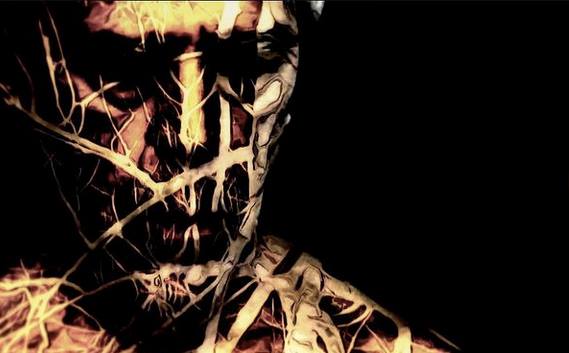SOFT EYES
John DuncanLP released by iDEAL with cover image by Gary Jo Gardenhire and design by Philip Marshall.
Podcast
Italiano
LOUD!
Quietly stunning, sensitive songcraft by boundary-pushing avant gardist John Duncan on a starkly haunting and timelessly beautiful new album of observations on society and intimacy, featuring Eiko Ishibashi, Stefano Pilia and friends, and highly recommended if yr feeling Scott Walker, Keiji Haino, Jandek, Tom Waits, Mark Lanegan, David Thomas & Two Pale Boys.
In pursuit of the haunted muse that's informed Duncan's boundary-pushing work since the late '70s, and which has lit up the iDEAL catalogue over the past half decade, 'Soft Eyes' renders Duncan's oblique reading of the psychic zeitgeist in subtly contrasting sides of furtively rhythm-driven and richly atmospheric songcraft. In keeping with his reputation as a sort of avant garde shaman or psychopomp, there's something unfathomably timeless and ineffably eternal about his work on 'Soft Eyes', which follows the course of his modern classics such as the songbook of wizened covers 'Bitter Earth' (2016), and last year's 'Red Sky' 2CD, without feeling like he's retreading old ground, and still sounding vitally unusual.
The record's first half centres on Duncan's thoughts on social energy and failure, from crowds to tribal gatherings, in a low-key but extraordinary style. Chamber wind meets a metallic pulse somewhere between dembow and Yemeni folk to underline his achingly hoarse vocals on 'The Rabid Position', while the lurking vox of 'Say No' smartly reaffirms his counter-cultural cache, and the queered ambience of 'Homecoming' sees him slip into a sort of curdled tribal reverie.
On the other hand, the B-side dwells in a starker, more intimate half light, with songs stripped to a spectral quintessence between the petal-fall keys and prickly sax of 'Foreplay', a face freezing, ASMR-triggering beauty titled 'Frenzy' (featuring synth and mixing from Eiko Ishibashi), and an unmissable, abyss-hovering vision 'Resolve', and pooling into the miasmic folk strings and stygian glyde of 'The Beautiful Attempt.'
--Boomkat
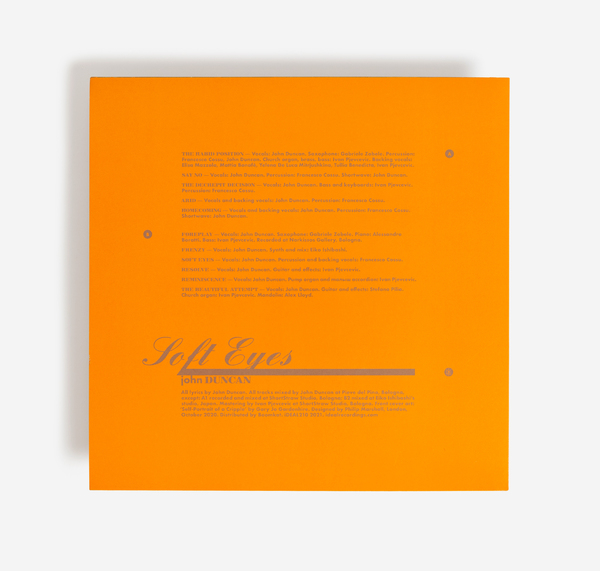
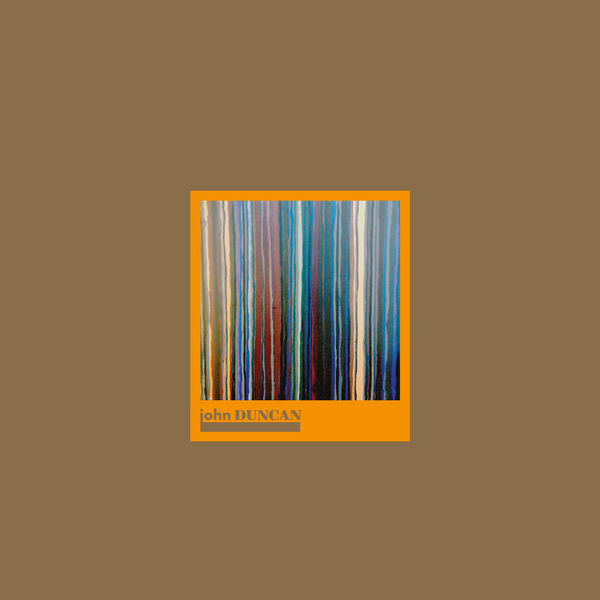
BACKFIRE OF JOY
Phew, John Duncan, Kondo Tatsuo recorded live at Hosei University, Tokyo.LP released by Black Truffle with cover photo and design by Lasse Marhaug.
Black Truffle is thrilled to announce Backfire of Joy, a previously unheard recording from Phew, John Duncan and Kondo Tatsuo, documenting a concert at Tokyo's Hosei University in 1982. Though the fertile exchange of 'zines, tapes and records between the Japanese underground and the Los Angeles Free Music Society meant the artists were familiar with each other's work, this performance (occurring on Duncan's first visit to Japan) was their first meeting and only performance as a trio.
Duncan is heard on his signature shortwave radio set-up, while Kondo performs on synth, tape loops and echo-drenched piano, providing a spacious backdrop for Phew's astonishing performance of spontaneous, free-associative song moving between Japanese and English. A testament to the unhinged exploration of the 1980s experimental underground, the trio careen wildly between crashing percussive tape loops, deluges of shortwave noise, insistent piano figures and playful synth melodies. On the B side, we are treated to a remarkable ten minute sequence moving organically from spaced-out synth and radio textures to a stunning finale of improvised balladry centred on piano and voice, unexpectedly broken up by electronic interjections. Beautifully recorded in crunchy vintage fidelity, Backfire of Joy arrives accompanied by archival photographs and newly authored liner notes from all three participants.
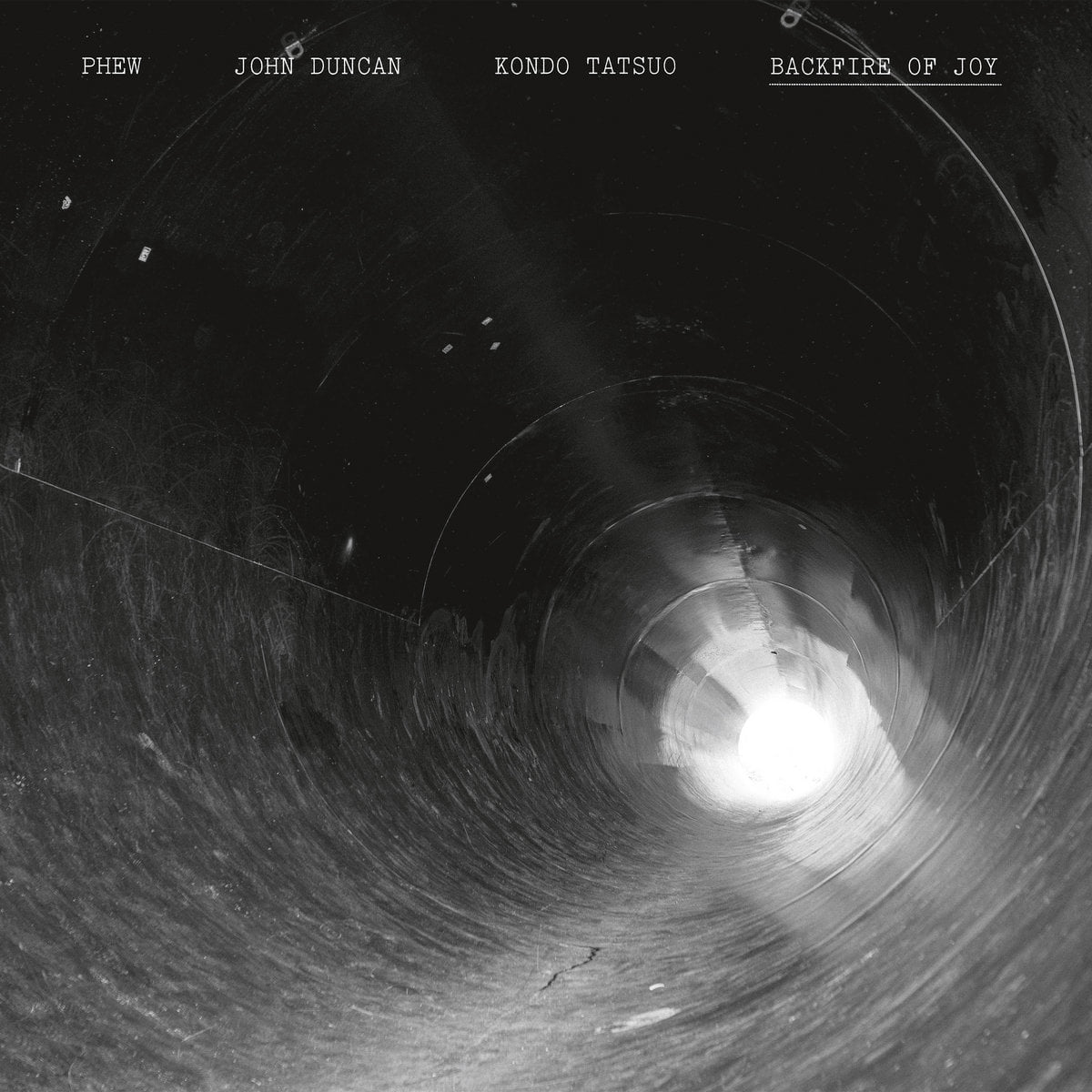
TRY AGAIN
John Duncan and Stefano PiliaLP released by Maple Death
Photos and text by Matilde Piazzi
400 copies in black vinyl
100 copies in purple vinyl
20 copies with unique artwork by Duncan
English podcasts:
CvltNation
Bepi Crespan Presents
German podcasts:
Radio Gagarin
Italian podcasts:
Sentireascoltare
RAI-Battiti Franco Battiato tribute
RAI-Battiti 'The Body Is Electric'
Distorted classical choral recordings, synths, processed guitar… The exquisitely complex human-machine interface experiments conducted by Stefano Pilia are kept in a delicate balance by John Duncan's lyrics and the soulful quality of his vocals, for an album of electroacoustic songs that are a unique blend for both artists. Seeds and memories from the past are re-actualized in the present through a machine electroacoustic compositional process creating a dark, gloomy and terrifying image of the future. Duncan's lyrics offer a counterpointing liberation to the machine processes in action here, poetically revealing the dark and intimate struggle between the human soul and its rapport with the machine.
These recordings are a point of departure for Matilde Piazzi's inspired liner notes and photos, that take this release to another level entirely, becoming a metaphor for contemporary efforts to reach the limits of knowledge and discovery, their heroic nature and their inevitable failure.
Both artists worked on their respective sections in isolation, Pilia in an industrial area of central Bologna, Duncan in the wilderness several kilometers south of the urban sprawl. Together, their recordings developed an almost magnetic attraction that seemed to meld effortlessly.
The experience of listening quickly takes on a cinematic quality, exquisitely moving from an oceanic uplifting (Try Again) to the depths of apocalyptic, unsettling vocals (Fare Forward), constantly maintaining a lush, richly complex tapestry. The linear understanding of time is suddenly gone, dominated by a crushing machine-defined present, with Duncan's lyrics and vocals becoming a shamanic portal to a possible future.
Masterful melange of choral cut-ups, wizened strings and pulsing, keening electro-acoustic sculptures from Italian native Pilia (3/4HadBeenEliminated) and resident Duncan, reprising a relationship ongoing over decades
Latest in a streak of genius releases starring Duncan's inimitable vocals finds the duo plumbing the depths of an avant soul space between man and machine. Both based in and around the industrial nether region of Bologna, Italy, and its meridian wilderness, Pilia brings a stark avant rock energy to Duncan's brittle vocals, which have gripped and uniquely entertained us most acutely on a stack of releases for iDEAL in recent years - not to mention his catalogue since the late '70s.
'Try Again' is prefaced by the command "Try Again / Lie Again/ Deny Again", which speaks to the dark forces at work inside. Of course we're sure they're in line with Duncan's abstract grasp of transgressive matters. He's really more like a sort of psychopomp for Pilia's music; a visionary medium whose work crosses so many boundaries of time and space, which Pilia renders remarkably malleable between his sweeping transition from night-flight to sepulchral depth in the album's towering opener 'Try Again', and the guttural lament 'Fare Forward' at its peripheries, while nesting more knotted ideas in the album's hexed core of 'The Reprisal', and unsettling keen and croon of 'The Sellout.'
Bleakly life affirming stuff.
-- Boomkat
Duncan in almost hallowed, monastic form, at first sings sonorous lulls before strung-out in the depths of an enveloping, drifted space, echoes the mournful mantra: "Horizon disappeared. Direction disappeared. Companions disappeared. Fare forward anyway." Pilia manifests an orbital seeping patter and slow scattered moody bed of metallic reverberations and gravitas.
-- Monolith cocktail
Try Again è il risultato della forte attrazione tra il carisma e le visioni di John Duncan e la purezza e la profondità dei suoni di Stefano Pilia. I cinque pezzi pubblicati dalla londinese Maple Death rappresentano un trait d'union tra l'avanguardia di un tempo e quella che verrà, per perfetta interazione tra uomo e macchina. Try Again, traccia d'apertura, è una minisuite in cui le declamazioni ecolaliche di Duncan, e cori quasi angelici, fluttuano sulla texture elettroacustica di Pilia. The Reprisal, The Sellout e Obsolete + Comeback si odono in lontananza all'interno di una navicella sperduta nello Spazio, tra lamenti liberatori e sculture sonore futuristiche. Chiude l'album Fare Forward, cavalcata oscura e abrasiva dai contorni onirici e cinematografici. Sciamanesimo sperimentale senza tempo.
Try Again is the result of the strong attraction between John Duncan's charisma and visions and Stefano Pilia's purity and depth of sounds. The five pieces published by the London-based Maple Death represent a trait d'union between the avant-garde of the past and the one to come, for perfect interaction between man and machine. Try Again, the opening track, is a minisuite in which Duncan's ecolal declamations, and almost angelic choirs, float on Pilia's electro-acoustic texture. The Reprisal, The Sellout and Obsolete + Comeback can be heard in the distance inside a spacecraft lost in Space, amidst liberating laments and futuristic sound sculptures. The album Fare Forward closes, a dark and abrasive ride with dreamlike and cinematic contours. Timeless experimental shamanism.
-- Antonio Briozzo, Rumori
L'uomo di un eterno futuro. Il volto di tre quarti, illuminato lievemente da un oblò di luce aliena La bocca socchiusa, sensuale, forse a voler dire, forse a sorridere, forse niente. Lo sfondo schiaccia il soggetto nei piani, lo sovrasta, lo circonda... E' l'immagine di copertina del nuovo progetto elettroacustico di John Duncan e Stefano Pilia, l'uomo è Eugene A. Cernan, il primo pilota della missione Gemini IX, la foto scatta dal comandante Stafford, il 3 giugno del 1966, la capsula appena partita. Eugene ha 32 anni ed è la sua prima volta nello spazio. Sei anni dopo sarà l'ultimo uomo di camminare sulla luna. Non è che una parte del prezioso testo che accompagna Try Again titolo del disco e brano di apertura, che da solo si porta via i 14 minuti forse più abbacinanti. Dopo tre minuti di una nebulosa elettroacustica John Duncan declama quasi come un mantra ossessivo e spiritato Try Again, Lie Again, Deny Again, provare, provare di nuovo, mentire, negare, ma ecco che all'ottavo minuto accade l'imponderabile. Il cielo si squarcia, la nebulosa spaventosa si disperde e dissolve e un coro sacro e maestoso prende il sopravvento quasi fino alla fine, evocando l'impresa titanica dell'Aguirre di Herzog con la musica dei Popol Vuh, come quella anche qui solenne, catartica. Prima che un temibile clangore metallico se la porti via. Parte un nuovo ciclo di vite più distopico ancora: The Reprisal, The Sellout, Obsolete+Comeback che ci riporta su territori di nuovo impervi e ci inghiotte come dentro una spirale cosmica. E quella domanda, sempre quella: chi è quest'uomo? E noi cosa siamo? Quanti siamo? Come ci vogliamo perdere? E' sempre il testo che scorre tra i suoni, Duncan si muove e si agita come uno sciamano che ha visto qualcosa che non osiamo vedere, la sua voce colpisce e ottenebra, Pilia è il gran cerimoniere alla regia di quei materiali sonori, su cui Duncan elabora ed estende. Suoni generati dalla relazione con le macchine, la battaglia che ogni giorno combattiamo con quelle stesse macchine, incessante, eroica, fallimentare, forse inutile, a cui l'artista e fotografa Matilde Piazzi dona impulso con le sue note ed immagini. Poca chitarra, perlopiù astratta e più campioni di musiche per coro, quartetti d'archi, suoni trovati, su cui far germinare le canzoni elettroacustiche di entrambi. Meglio, l'anima di entrambi. Che hanno lavorato a distanza ognuno nel proprio isolamento, urbano quello di Pilia, immerso nel più silenzioso paesaggio collinare quello di Duncan. E Fare Forward splendente e commovente alla fine, indica la strada e forse la luce. Occore andare avanti, sapere le parole che abbiamo condiviso, sedersi sui tetti dei mondi e leggendo ancora tra le note, salvarci tutti dall'oblio, una nuova vita: non una sola anima-cosmo. Horizon disappeared, Direction disappeared, Companions disappeared, Fare Forward Anyway, andare avanti.
The man of an eternal future. The face in three quarters, illuminated slightly by a porthole of alien light, the mouth ajar, sensual, perhaps about to speak, perhaps to smile, perhaps nothing. The background crushes the subject in the planes, dominates him, surrounds him ... This is the cover image of the new electro-acoustic project by John Duncan and Stefano Pilia, the man is Eugene A. Cernan, the first pilot of the Gemini IX mission, the photo taken by Commander Stafford, June 3, 1966, the capsule has just taken off. Eugene is 32 years old and this is his first time in space. Six years later he will be the last man walking on the moon. This is only a short extract of the precious text that accompanies (the album) Try Again, which is also the title of the 14 minute title track that maybe captures the most dazzling moments of the record. After three minutes of an electro-acoustic nebula John Duncan repeats almost like an obsessive and spirited mantra Try Again, Lie Again, Deny Again, but here after eight minutes the imponderable happens. The sky flourishes, the scary nebula disperses and dissolves and a sacred and majestic choir takes over the way upward to the end, evoking the titanic feat of Herzog's Aguirre with the music of Popol Vuh, solemn and cathartic. Before a terrific metallic klang brings that moment to a halt. Then a new cycle of life, even more dystopian, starts again: The Reprisal, The Sellout, Obsolete + Comeback bring us back to new arduous territories and swallows us like a cosmic spiral. And that question, always: who is this man? And what are we? How many are we? How do we want to lose? It is always the text that flows between the sounds, Duncan sways and moves like a shaman who has seen something we dare not to look at, his voice hits hard and spreads darkness, Pilia is the master of ceremonies conducting the sound material above which Duncan elaborates and expands. Sounds generated by our relationship with the machines, the battle that we fight every day with them, incessant, heroic, bankrupt, perhaps useless, to which the artist and photographer Matilde Piazzi gives impulse with her notes and images. Minimal guitar, mostly abstract and more selections of music for choir, string quartets, found sounds, on which to germinate the electro-acoustic songs of both. Better, the soul of both. That they worked at a distance each in his own isolation, urban that of Pilia, immersed in the quietest hilly landscape that of Duncan. And Fare Forward, shining and moving at the end, indicates the road and perhaps the light. We must go ahead, know the words we shared, sit on the roofs of the worlds and still reading between the notes, save ourselves all from the oblivion, a new life: not simply a single soul-cosmo. Horizon Disappeared, Direction Disappeared, Companions Disappeared, Fare Forward Anyway.
--Gino Dal Soler, BlowUp
That two experimenters like John Duncan and Stefano Pilia cross their weapons in a record is already news worthy of attention. The first for several decades a leading name in the field of musical avant-garde, performance art and video art, with an intense solo production and an infinite number of shared collaborations - just to name a few - with Oren Ambarchi, Masami Akita, Z'ev and Elliot Sharp; the second already in the past in thick bands, such as 3 / 4HadBeenEliminated, In Zaire, Il Sogno Del Marinaio, Massimo Volume and Afterhours, as well as active in the trio with David Grubbs and Andrea Belfi and more recently also in the duo with Massimo Pupillo degli Zu, has developed a personal research on the sculptural properties of sound and its relationship with space, memory and the suspension of time.
Try Again is an electroacoustic work focused on the controversial and difficult relationship of man with the asphyxiated contemporary world, a concept in which exquisitely existential dynamics come into play in the presence of the objective culture of simmelian memory, but no less dominated by new forms of usability. man-machine. A context that is a harbinger of even rather obscure contradictions, in which the human soul wages a real struggle to maintain integrity; subject that the two face by placing themselves analogously towards it, through a mix of experimental electronics and bodily tensions made of flesh and blood.
The programmatic title track perfectly reveals the visionary nature of the project but also the ability to render it with a disruptive dress. A long sidereal trace not to be confused with a simple cosmic impulse, but rather skilled in outlining the dialectic between internal cold and technological externality; a tense staff encysted by continuous tensions on which Duncan's valuable interpretation acts both as a catatonic scream of pain and as a form of human resistance. A song that mesmerizes through Pilia's seething research, an elegant vision enriched by both Jim O'Rourke's drone intuitions and the minimalism of the early Pan Sonic, and the magnetic blues abstractions of the American experimenter, which we have been able to appreciate in albums like Red Sky.
And so among futurist rarefactions, exposed cybernetic nerves and tearing asynchronous pulsations, everything travels with a personal breath and splendidly arranged from a tough point of view; and up to the dark drone lament of Fare Forward that grabs the attention until the end. A discourse to be taken into consideration not only for the brilliant structure of the reasoning, but also for the skill and beauty in expressing it.
--Sentire Ascoltare (Italian original)
The five tracks from the LP are born analyzing the conflictual relationship between man and machine through the dark instrumentals of Pilia and the delicate texts of Duncan for a listening experience with a cinematic form.
The intense exploration of the duo starts from a choral and distorted recording on which the hypnotic and obsessive voice of Duncan rests. Fifteen minutes in which the two musicians immerse the listener to the depths of the ocean floor: the voice becomes an echo, a looped message that finds the right elements for a mystical ritual in the sounds of an elaborate guitar and synthesizers.
With The Reprisal the guitar is processed through a modular obtaining a changeable and oscillating sound able to bring out the text, a game of counterpoint between the dark processes of the machine and Duncan's intimately human voice. Obsolete + Comeback is a ghostly and disturbing sound fueled by an ecstatic and alienating passage obtained thanks to the modified guitars and minimal repetitions that takes on the appearance of feedback and glitches. The machines take over the human part by 'infecting' the voice with a robotic effect.
Try Again is an album that leaves its mark with its distorted, noise and metallic sounds and a warm and enveloping human soul.
-- Mario Ariano, Radioaktiv (Italian original)
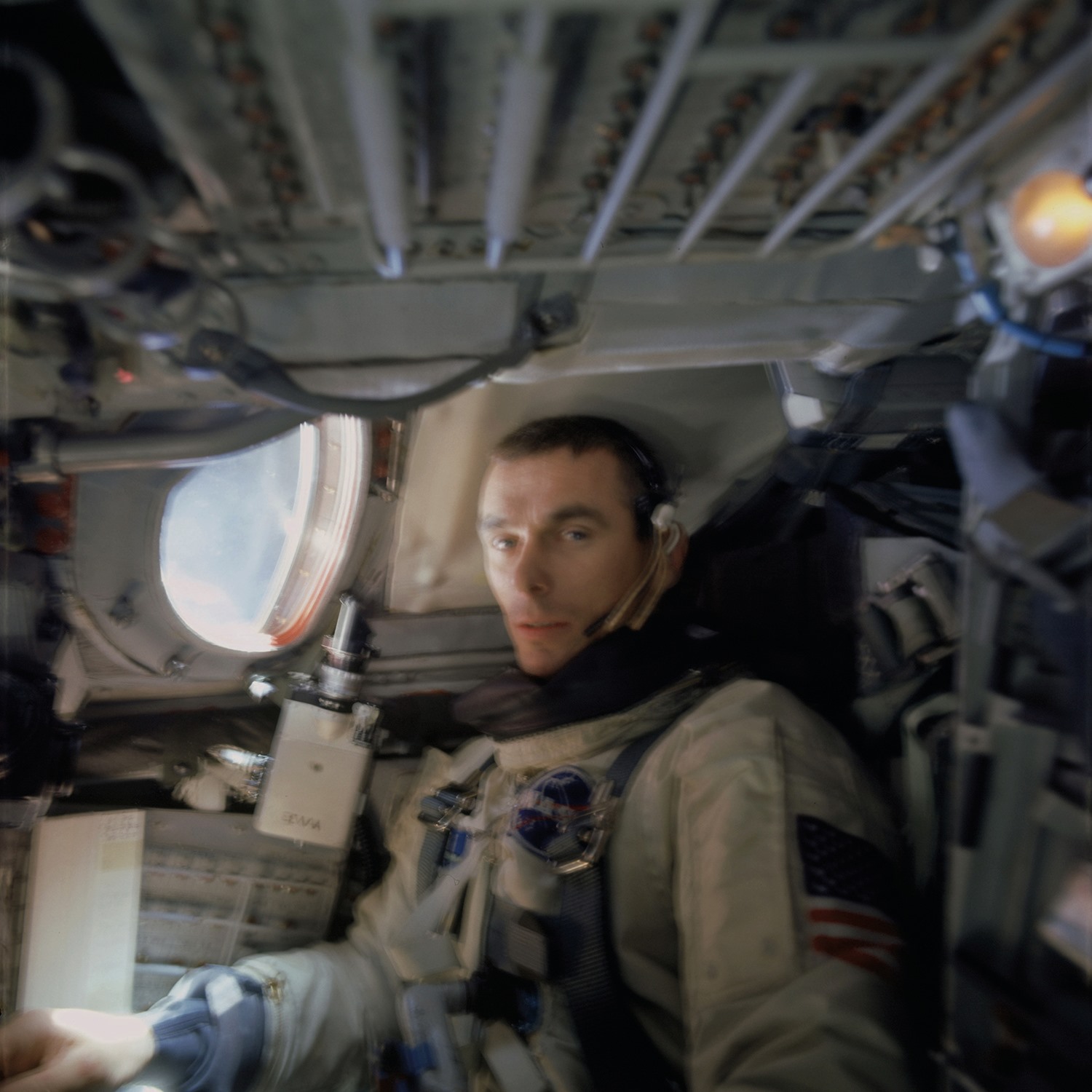
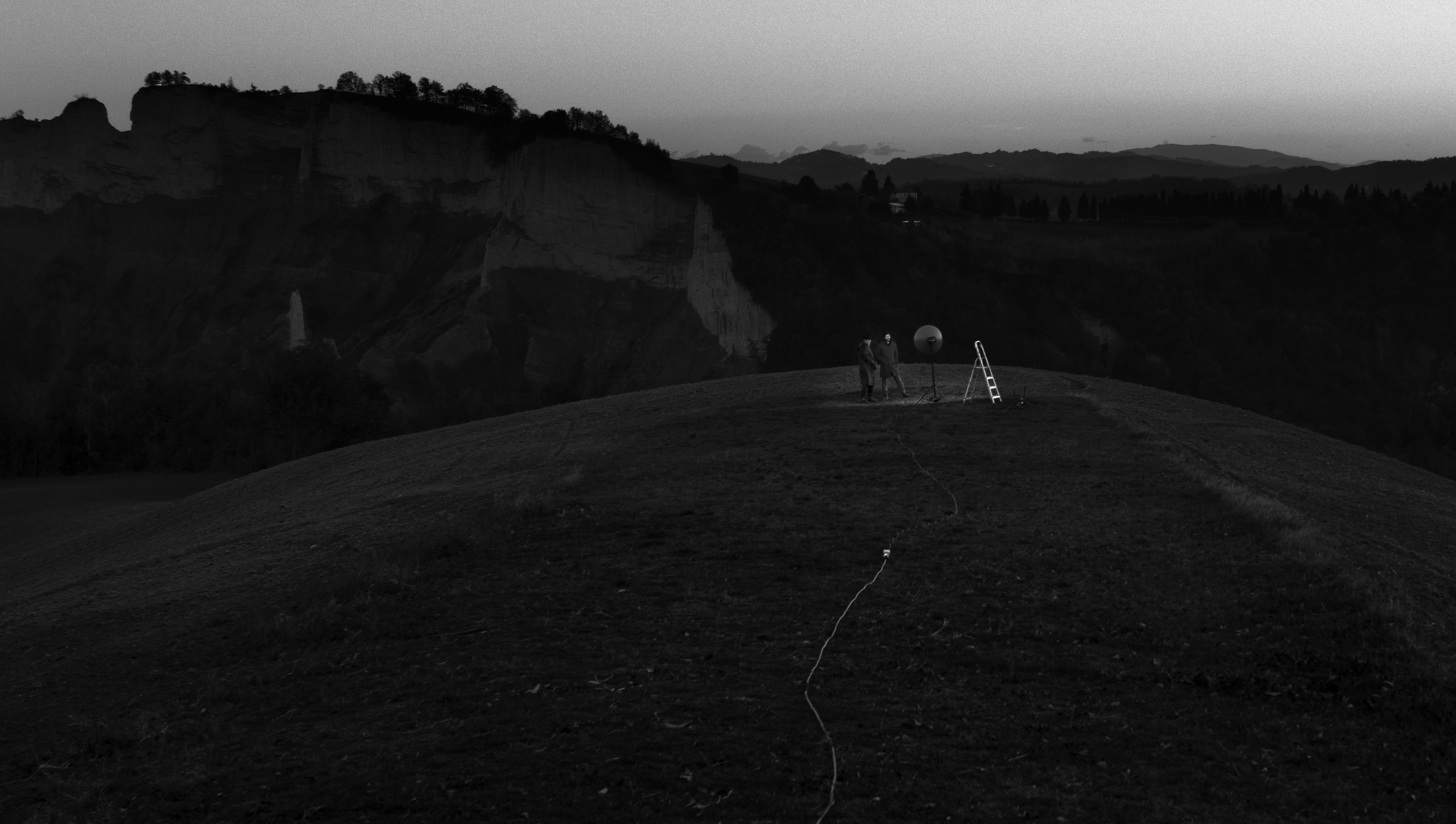
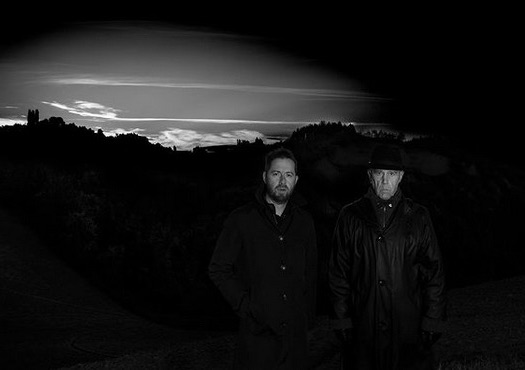
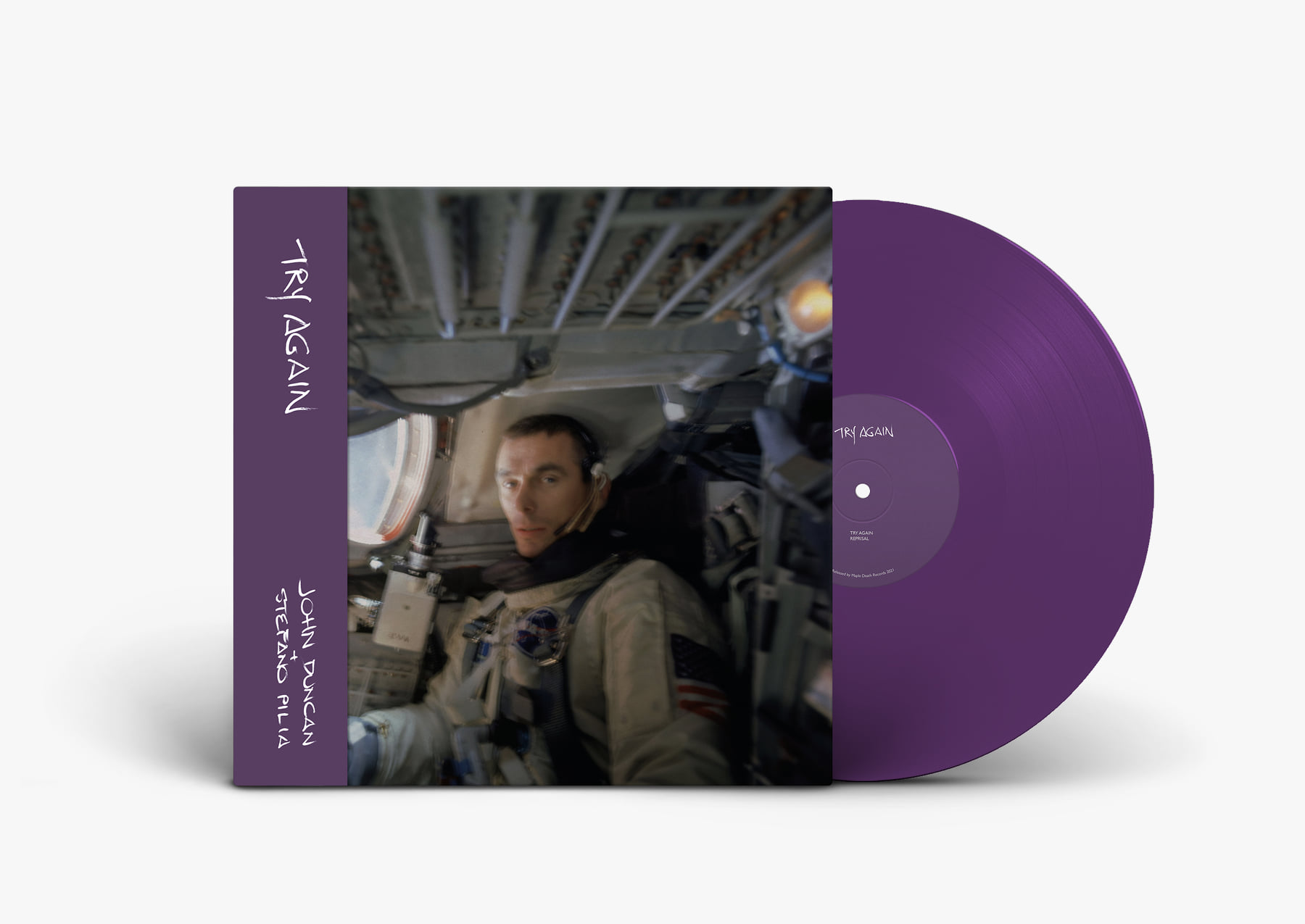
AMERICAN CANNIBALISM
Edward Paul QuistVideo produced and directed by Quist featuring Duncan as the cannibal.
